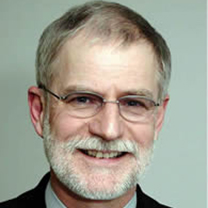The 8th Award Profile of the Recipient

Name and age
Christoph Reiners (age 64, Federal Republic of Germany)

Name and age
Christoph Reiners (age 64, Federal Republic of Germany)
● Curriculum Vitae
・1971 Graduated from the University of Würzburg Medical School
・1971 – 1987 Specialization in Nuclear Medicine at the University of Würzburg
・1987 – 1989 Associate professor at the University of Essen
・1989 – 1994 Full professor and head of the Department of Nuclear Medicine, University of Essen
・1994 – present Full professor and head of the Department of Nuclear Medicine, University of Würzburg
・2001 – present Managing Medical Director, University Hospital Würzburg
● Major accomplishments
・1989 Honorary member of the Austrian Association for Radiological Protection in Medicine
・1990 – 1996 Chairman, German Association of Medical Radiation Protection
・1996 Awarded the Federal Cross of Merit of the Federal Republic of Germany
・1996 – 1998 Chairman, German Radiation Protection Committee
・2000 Awarded the Francisca Scorina Order of Belarus
・2002 Member of the National Academy of Sciences Leopoldina
・2003 Appointed Dr. honoris causa of the Belarusian Medical State
University, Minsk
・2005 –present Director, German Collaborating Centre of the World Health Organization’s Radiation Emergency Medical Preparedness and Assistance Network
・2010 Awarded Light of Life honorary award, Memorial Sloan Kettering Cancer Institute, New York
● Reasons for selection
Professor Christoph Reiners has been ceaselessly devoted to the study of nuclear medicine since he graduated from the medical school at the University of Würzburg, one of the oldest universities in Germany. His research involves the medical application of radiation, and he is particularly known for his significant findings in the use of radioisotopes in diagnosis and treatment. He is also regarded as the successor of the renowned Prof. Wilhelm Conrad Röntgen’s.
The Chernobyl disaster occurred in April 26, 1986, and during his tenure as a professor of nuclear medicine at the University of Essen, he played a leading role in medical relief efforts there as Europe’s top expert in nuclear medicine. In 1992, he launched a collaborative research project for humanitarian aid in Belarus, which sustained the worst effects of the Chernobyl fallout.
One of his major achievements was the introduction of three-dimensional ultrasound diagnosis of thyroid diseases in Belarus. This leads to advancements in the early detection of initial onset and recurrence as well as in the clinical treatment of radiation-induced thyroid cancer. Prof. Reiners, in collaboration with Prof. Valentina Drozd of Minsk, also developed a diagnostic ultrasound procedure to screen for thyroid neoplasms.
After returning to his alma mater, the University of Würzburg, as head professor of a nuclear medicine teaching program, Prof. Reiners went on to launch a nuclear medicine treatment department in the Minsk Thyroid Cancer Center to promote diagnosis and therapy using radioisotopes. He also established an endocrinology research center in the city of Kiev in Ukraine and achieved impressive results in treating the growing number of thyroid cancer patients in the region.
Furthermore, in 1992, Prof. Reiners invited 247 children who were in the advanced stages of perpetually recurring and metastasizing thyroid cancer from Belarus to Germany, provided them with proper medical care and succeeded in achieving remarkable therapeutic results. He was awarded the Francisca Scorina Order from the President of Belarus for his efforts.
